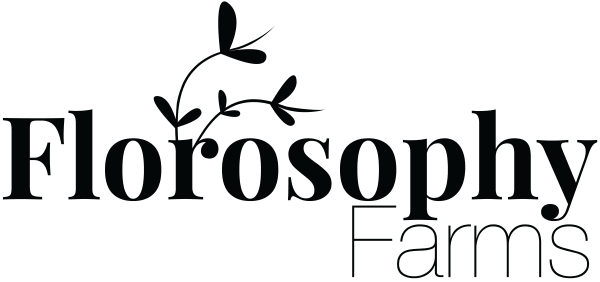Florosophy Farms
The Farm
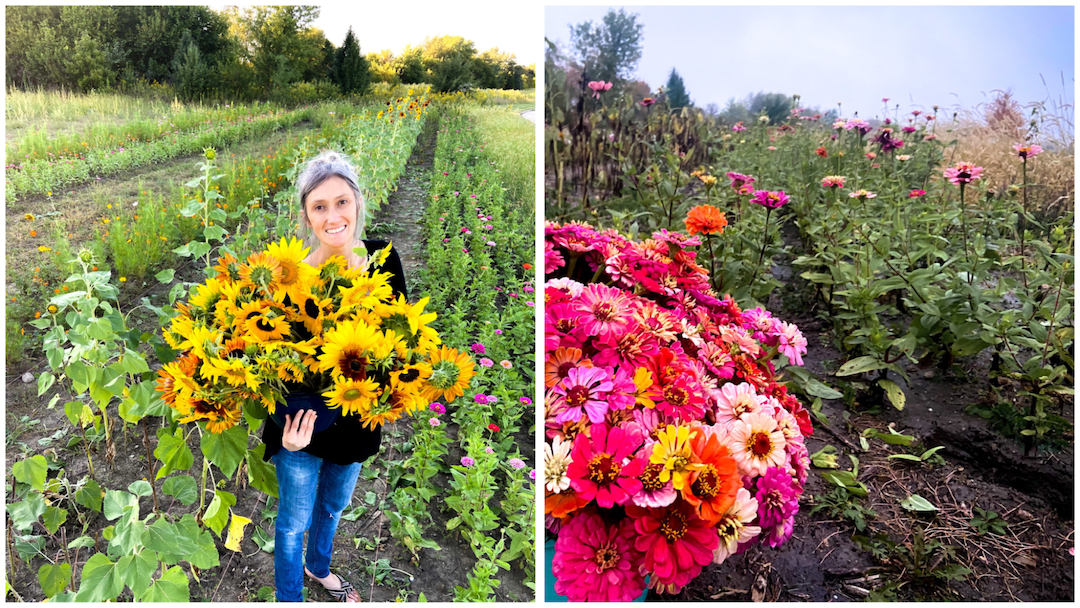
We started Florosophy Farms in 2020 as a backyard micro-farm with only 1,500 square feet of growing space. Our farm has quickly grown into more than 2 acres of stunning blooms and has become a fully operational regional supplier of cut-flowers here in the Midwest.
Here is the story about how we got here, along with some other fun information about us and the farm. Tap or click on the left-hand side of the screen to skip ahead.
Our Story
BEFORE THE FARM
"I remember watching Bed Of Roses as a teeneager. It was about a guy who left his corporate job to start a flower shop and deliver flowers for a living, and I remember thinking ‘Gosh! What a dream —But there is no way I would ever be able to have my own florist shop.’"
After getting married in 2013, we moved to Hawaii where Rebekah started working as a wedding florist for destination weddings at some of the most prestigious beaches and resorts in the world.
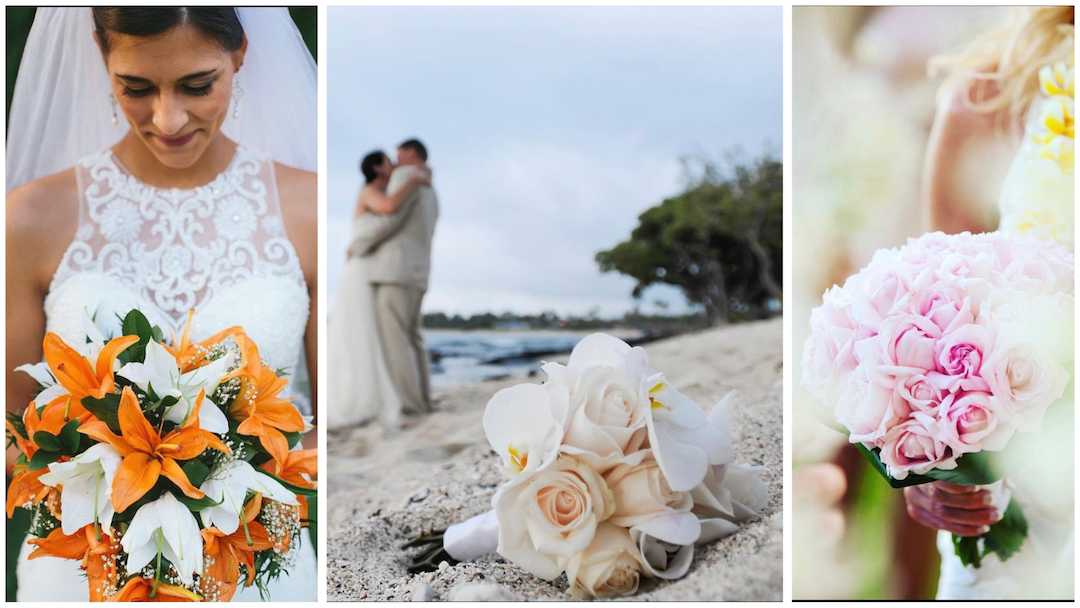
Ryan was working in the film industry producing movies, which eventually took us back to Los Angeles, CA.
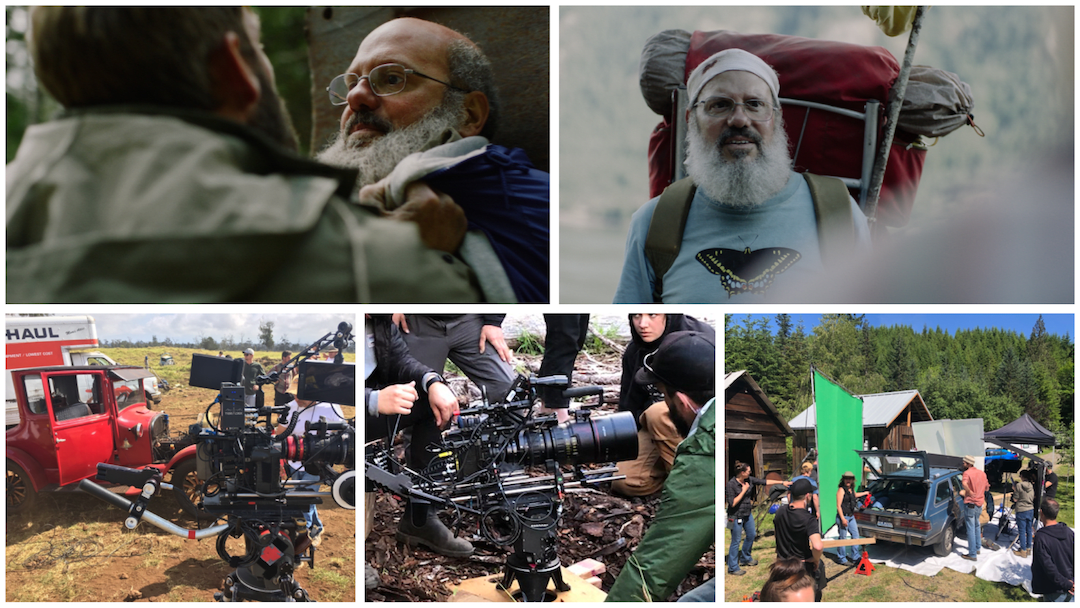
With her wedding business halted due to the move, Rebekah wanted to try growing her own flowers to sell at a local farmer’s market, but we were living in the middle of the city, in a small apartment, and had no real access to any land.
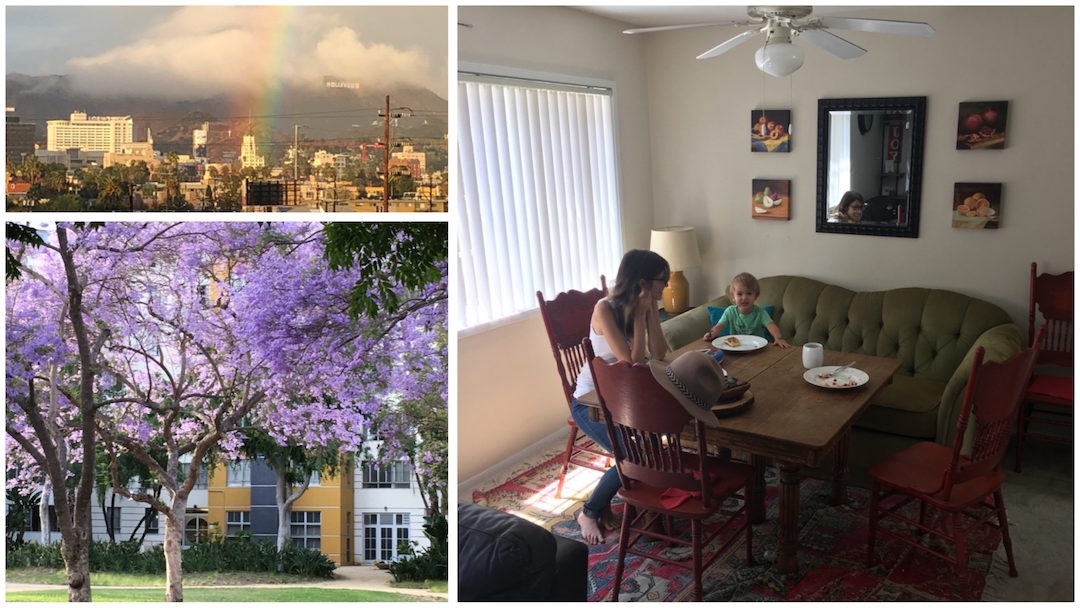
We loved the city, and the creative energy that flowed through LA, but we were itching to have more space. Both of us grew up in Illinois and now we had kids and the draw to go back to our literal roots was growing stronger every day. We wanted to go home.
THE LABORATORY
At the end of 2019, we decided to move our family back to Rebekah’s hometown, in Urbana, IL. We bought a house with a modest backyard only 3 minutes from the neighborhood she grew up in.
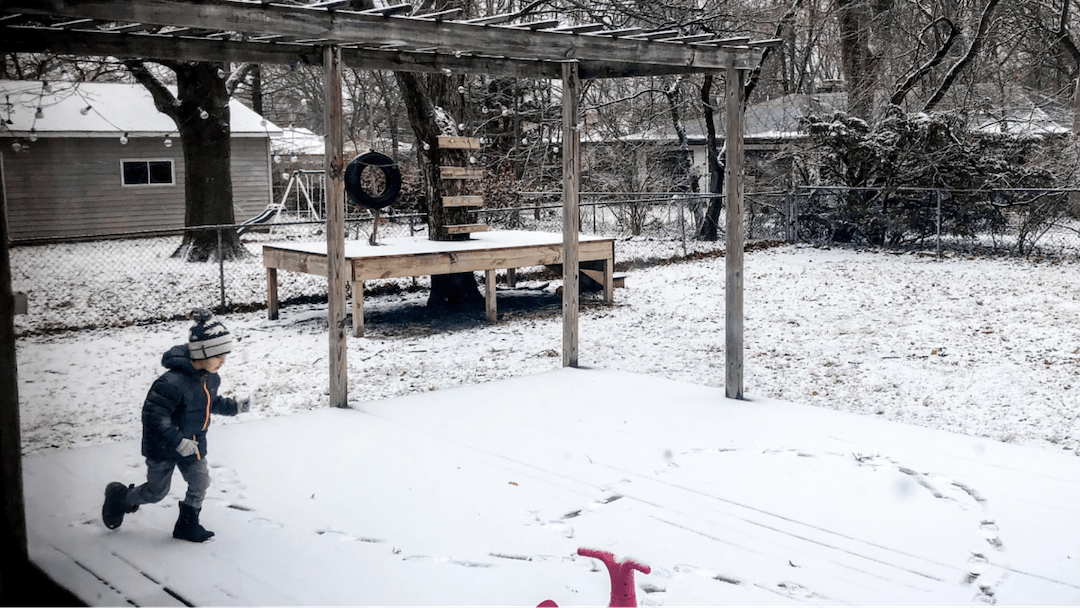
This small space was more than enough for Rebekah to start pursuing her dream and became the laboratory that would change our lives.
“I had been watching the floral industry shift and change over the years and became really fascinated with the ‘farm-to-vase’ movement that was taking place”
Ryan continued to work his movie job remotely but also began to jump in and help out with the flowers. We both worked hard and carved out half of our back yard to establish some small flower beds. They were tiny 10 ft x 3 ft strips of dirt. Rebekah got a bunch of seeds from Floret Flowers and began planting.
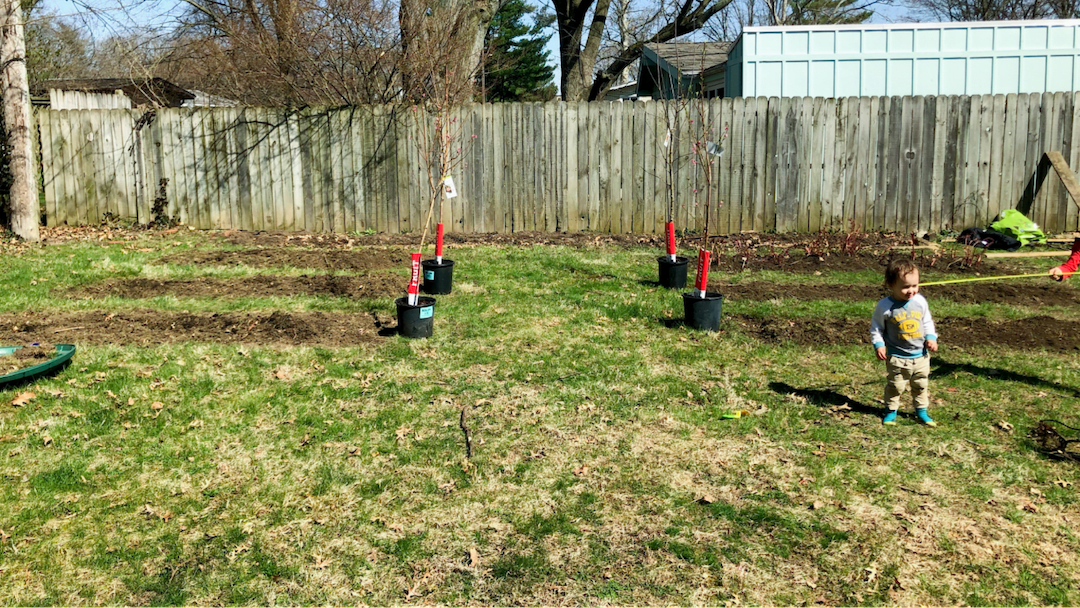
“We direct seeded everything, and relied on a garden hose to keep things watered. It was a bit of a wake up call”
To our excitement, things began to sprout and grow! But then to our devestation, we came out to find that the rabbits had started clearing out our sprouts! Some things made it through, but others just failed to thrive and started dying and we just let the kids play in the dirt.
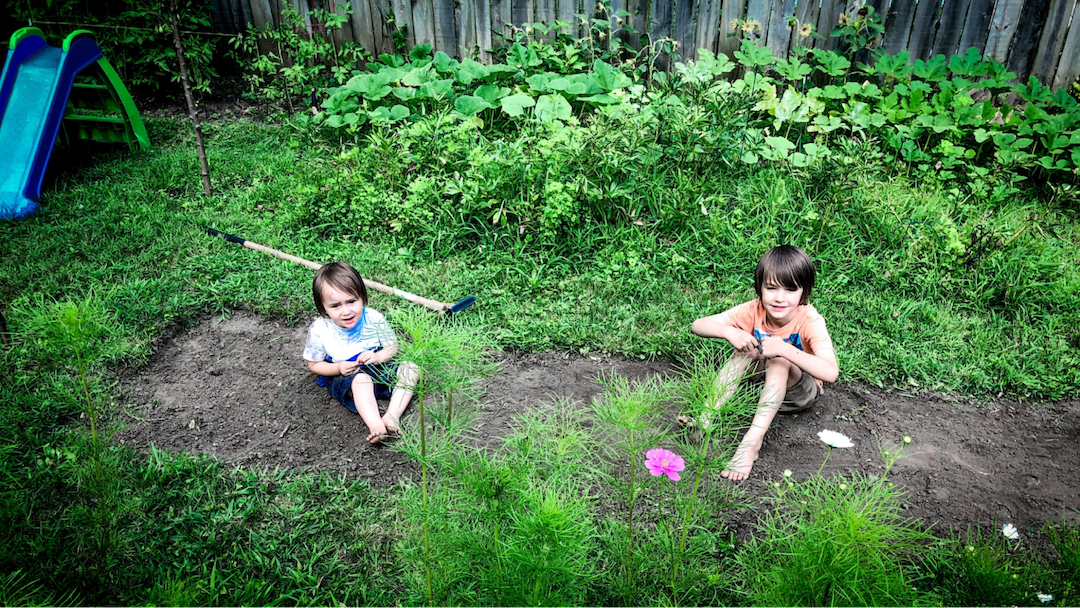
"That first year was an experiment. Most of the crops failed, and we never had enough product to sell. But we did learn a lot!”
One surprise we had that first year was at the end of the season, mid-October, our cosmos finally bloomed! Rebekah had overfertilized them and it stalled them from flowering. She decided to put together some bouquets and asked Ryan to photograph them for her. It ended up being an inspiring couple of hours working to make and photograph bouquets while our kids played in the yard.
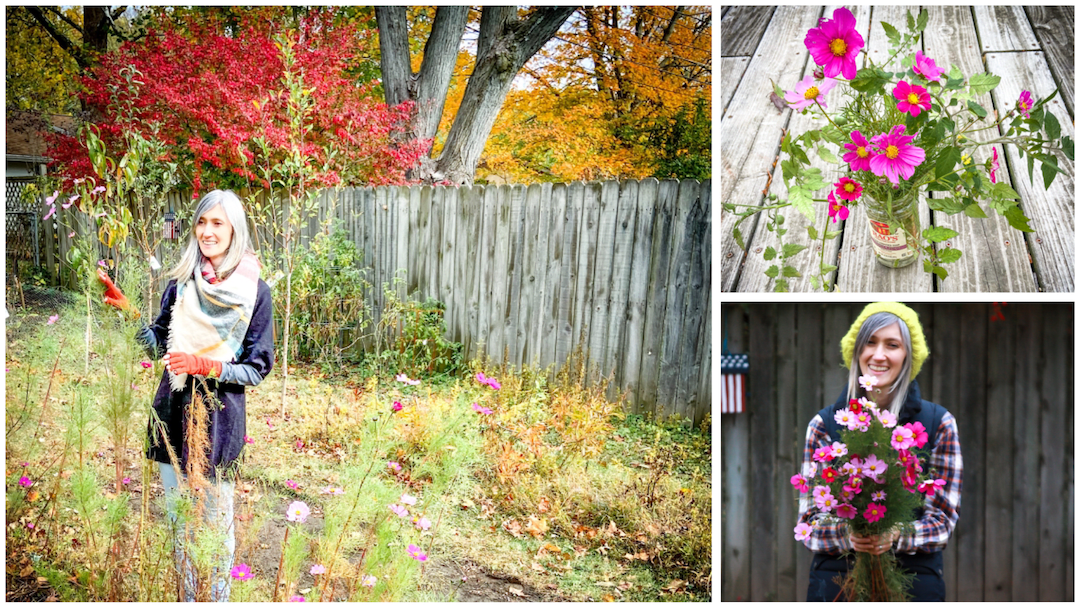
“I just kept thinking how what we were doing, both of us being able to bring our talents to the table and make something together—wouldnt it be great if we could do this seriously”
THE MICRO-FARM
Going into the next year, we doubled down. We researched, we studied, we talked to people, and we put some money into it and started incorporating proper farming techniques and best practices. We established an amazing little micro-farm utilizing the space and resources we had.
We bought some shop lights and seed trays and began starting thousands of our own plants down in our basement. People would come over to our house and look at us sideways when we would take them downstairs and they’d see rows and rows of grow-lights…I’m not sure if they full understood what we were growing.
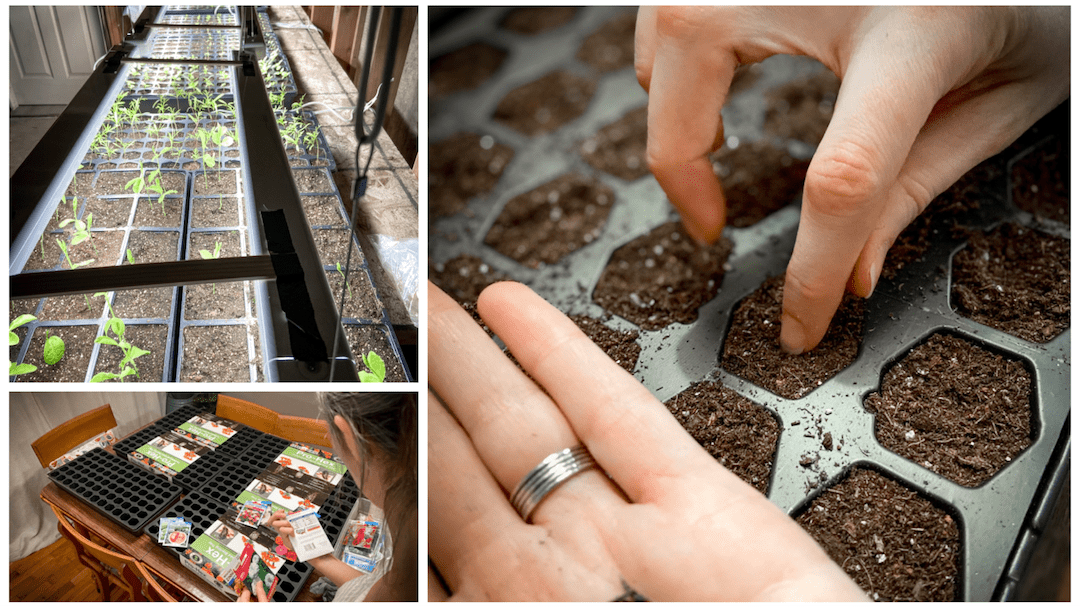
We also brought in a truckload of compost and amended our soil. We rented better equipment to turn over the dirt and established longer and wider “farm-style” beds. We started growing our crops in rows with irrigation lines and a fertigation system. We even utilized commercial grade weed cloth and burned holes for each plant.
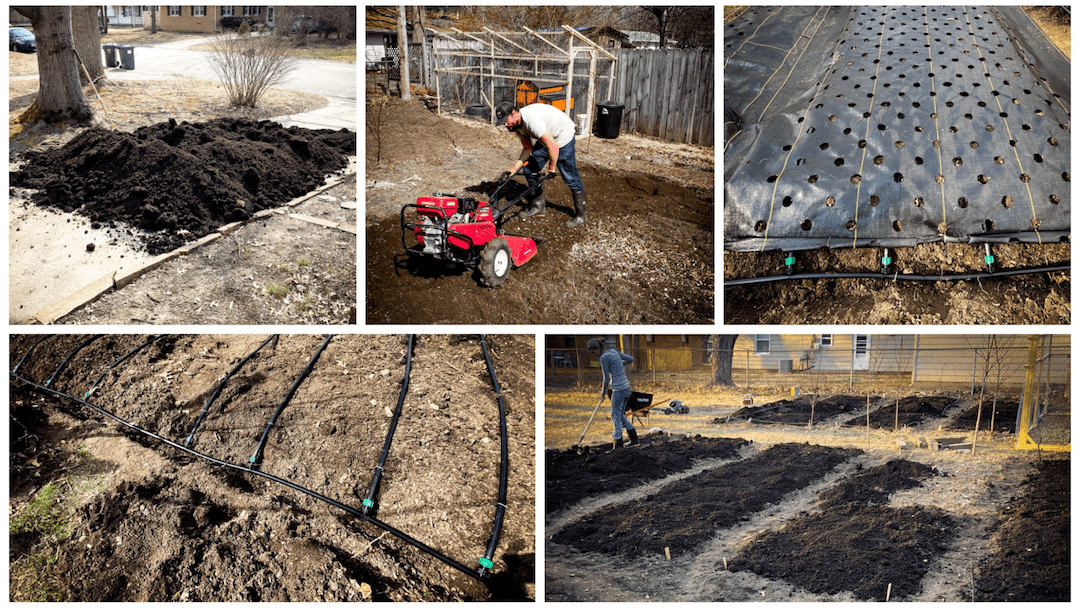
We even built our own caterpillar tunnels from scratch, bending pipes and covering them with plastic so we could start growing earlier in the season. At one point, the temps dropped and it started getting too cold at night for the plants in the tunnels. We had some chickens and heat lamps from when they were baby chicks. Ryan wired those into the tunnels for the flowers to keep the temps above freezing. It worked!
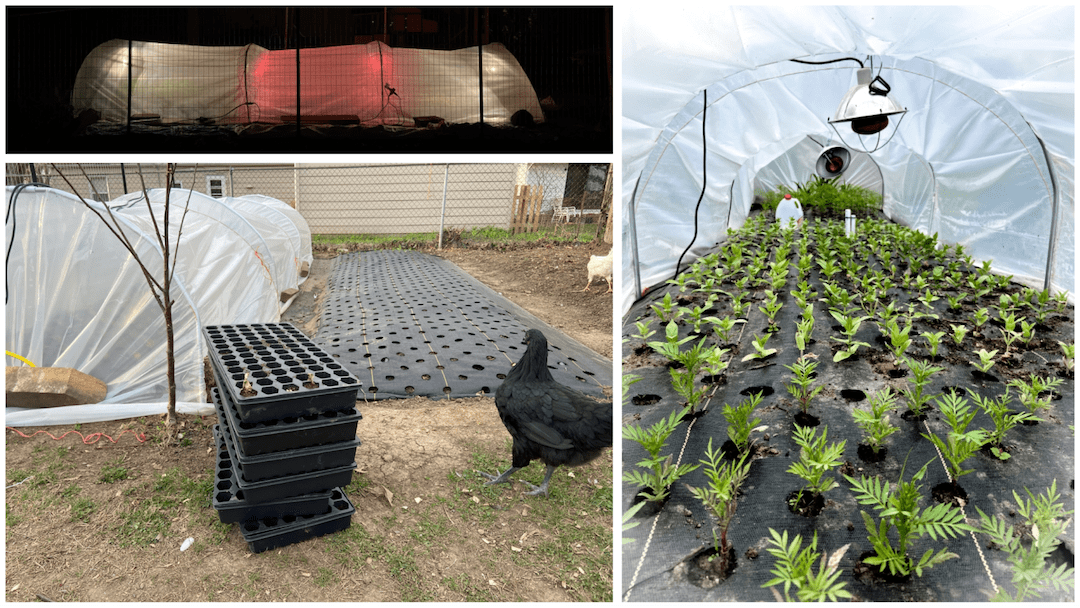
Late that spring of 2021, we opened our booth at Urbana’s Market at the Square, not sure what to expect. The problem was, the Farmer’s Market began sooner than our flowers were able to bloom!
Our first day at the farmer’s market was super exciting, yet really intimidating. I still remember driving up to the parking lot at 6 in the morning. It was still pitch black outside and all the other vendors were putting up their tents and setting out their produce, soaps, food, artisan goods AND flowers.
We rolled up in a van full of kids, and maybe 3 or 4 bouquets to sell. We scrambled at the last minute and put together some jars of forced bulbs and small vases with carnations, but it was a meager offering.
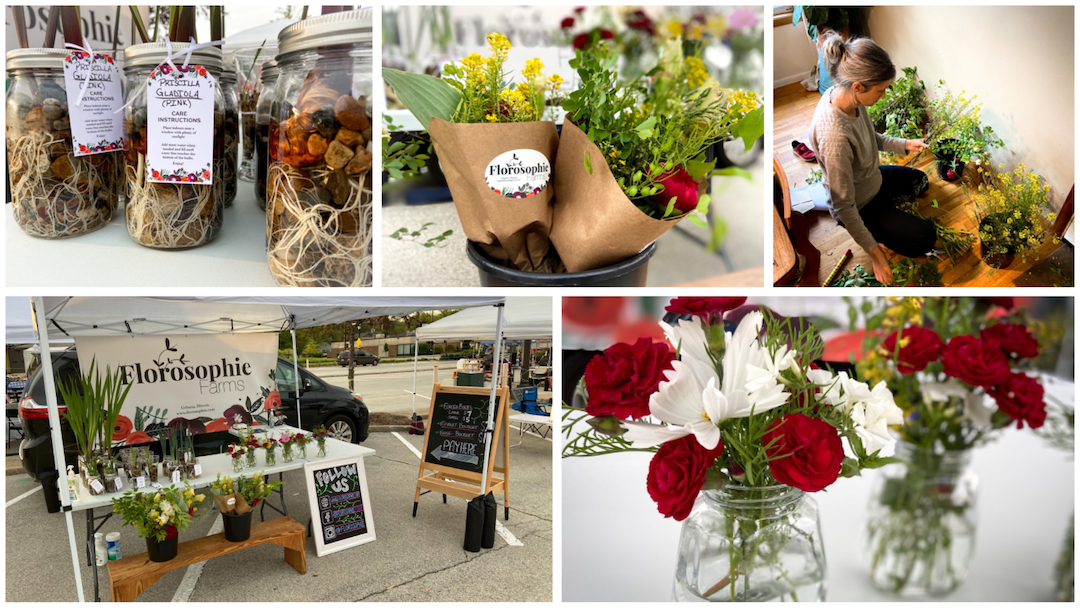
We did our best and sold a few things and decided to keep showing up each week
Then, our flowers began to bloom! All our hard work began to pay off.
The results were phenomenal. We were overwhelmed with an abundance of amazing blooms. The flowers kept selling out! We couldn’t grow enough to keep up with our customers. Each week we had more and more to offer and slowly, our little brand started to mean something! Customers would come back and tell us how their bouquets would last for 2 weeks. It was such a testimony to buying local and offering field-to-vase flowers.
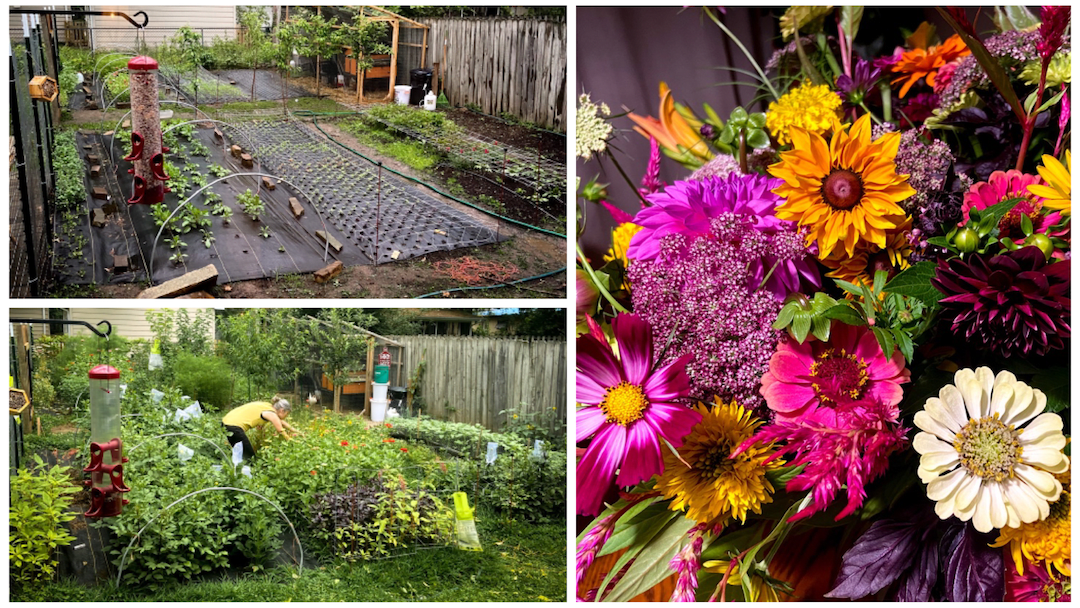
NEW LAND
We knew we needed more space than our back yard if we wanted to continue. We decided to expand and connected with The Adkins Group, a local real estate firm in town that manages thousands of acres of farmland in the area. We pitched our vision for growing our flower business and they told us about a piece of land they had only three minutes from our house. We agreed to lease 2.5 acres from them, which may not seem like a lot, but that is literally 70 times more than what we had been working with.
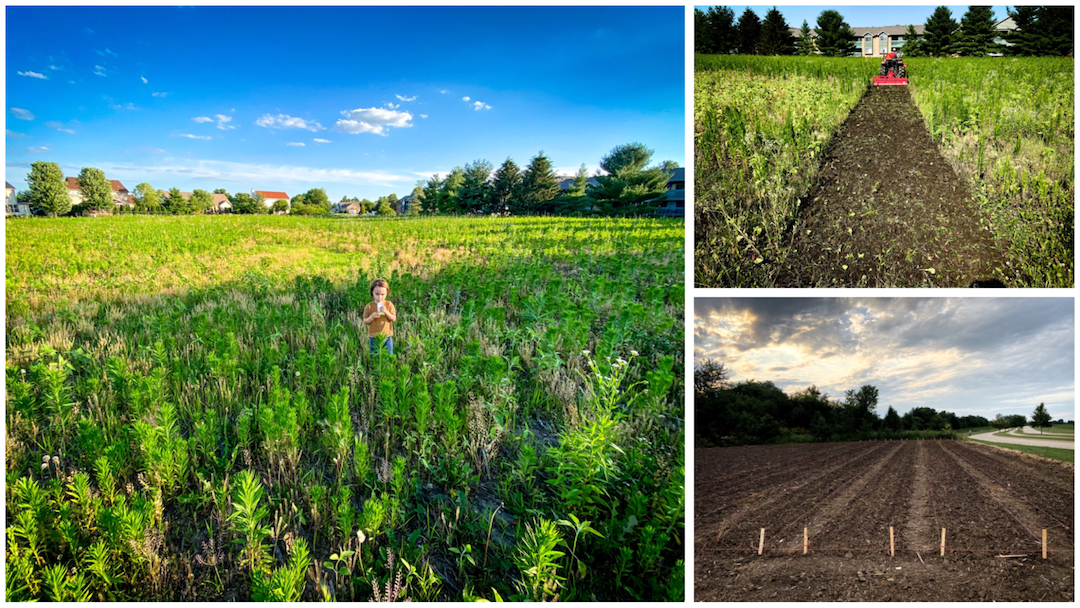
It was late in the season, but we put down as many seeds as we could on the new land which only ended up being about an eighth of an acre worth. We cultivated five one hundred foot beds. We had no water source on the land so we had to work with plants that were hardy and did not need a lot of irrigation. We chose Sunflowers, Zinnias, and Cosmos. These additional flowers became the tipping point for our business. Our sales at the farmers market exploded as customers we so excited about the flowers and we started to see the potential for what our little farm could do.
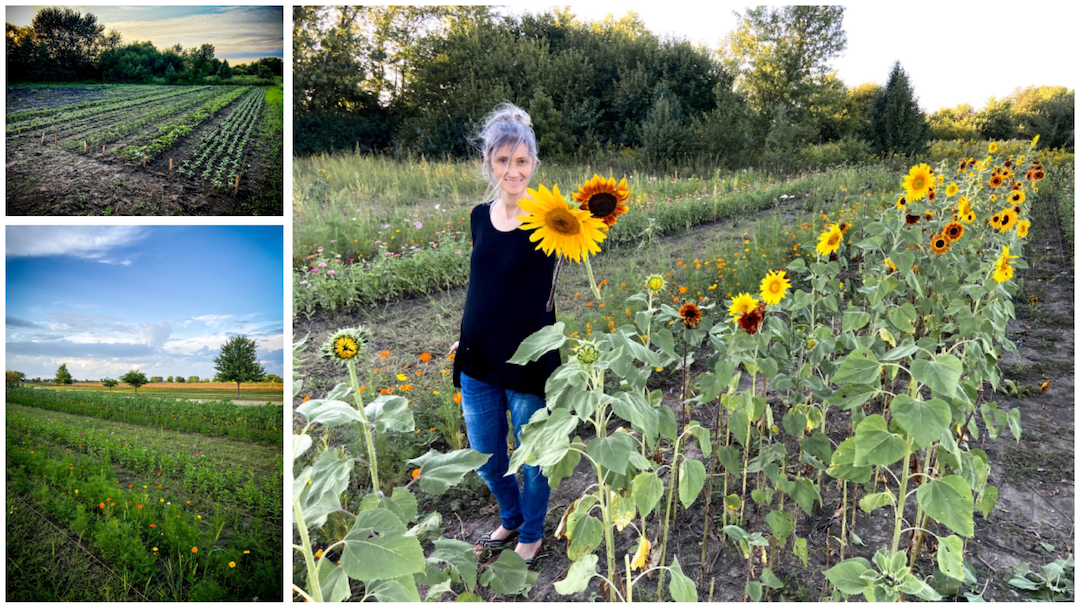
We finished out our year at the market proud of what we had accomplished, but ready to take things to the next level.
“I was caught off guard by how much I enjoyed farming flowers. Every aspect of it. The dirt, watching things grow, the work, the business, the customers…but also being able to do something with Rebekah that we both loved!”
Going into 2022, Ryan decided to leave his work in the film industry to join Rebekah and focus full time on building Florosophy Farms. In addition to the farm we have built out a full service florist shop and converted our garage into a design studio and flower cooler.
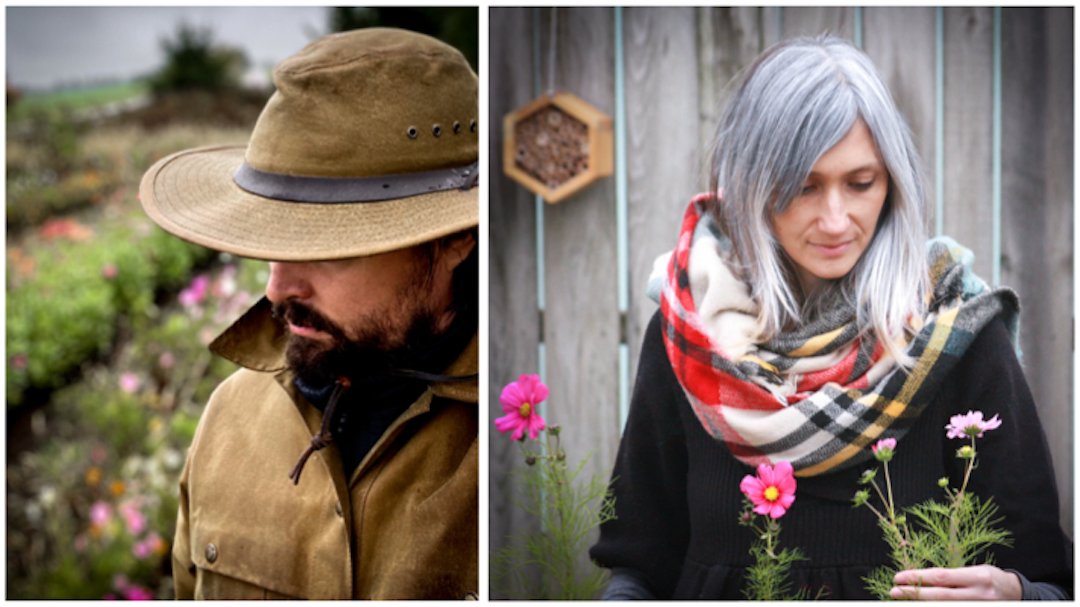
During the growing season Florosophy Farms offers a large variety of locally grown farm-fresh flowers. When needed, we supplement our flowers with blooms that we buy from our wholesaler, but our first passion and priority is growing and selling locally sourced, farm-fresh, field to vase flowers!
The flowers from our farm are available directly from Florosophy Farms as well as various floral vendors in the Champaign-Urbana community. We will also be shipping our flowers Nationwide to wholesale buyers through The Floral Source.
Farm Operations and Methods
PHILOSOPHY
We believe in Generosity, Integrity, and Joy.
At Florosophy Farms, we approach our business with integrity both toward community and the people we do business with as well as the land and our environmental impact. Nature heals and brings happiness to those that encounter it – we want to approach our business with joyu and give joy to those we encounter.
We believe in small farm values that are imperative to the integrity of our product. These practices allow us to manage and control how our flowers are produced. Our vision is to scale and grow at a sustainable level that allows us to maintain quality control.
There are 2 critical problems that our farm directly addresses: Sustainability and Environmental Impact. The United States is the largest consumer of flowers in the world.
“According to the United States Department of Agriculture, 80 percent of all flowers sold in the U.S. are imported, primarily from South American industrial flower farms that have a history of using harsh chemical fertilizers, toxic pesticides and unfair labor practices. At the U.S. border, flowers must be fumigated to clear customs.”
We believe we can be part of the solution. By providing sustainably grown, locally sourced flowers, we offer an alternative to consumers and wholesalers alike. We are very proud to be part of the growing farm-to-vase movement that is quickly growing.
To be clear and transparent – Our florist business does use flowers that are imported from industrial farms around the world. We are not against doing business with our international friends and neighbors. However, our goal as a business is to flip the ratio. We want to see 80% of the flowers that we use sourced from our farm or other US farms, and 20% from imports. If the industry caught on to this vision, we would see floral growing practices around the world shift and adjust to meet demand, much like we saw in the organic movement over the past couple decades.
Our florist shop will offer bouquets and arrangements that are 100% “farm fresh” and locally grown on our farm. These arrangements are seasonal and will be clearly labeled on our website as well as for weddings and special events. You can also call us to find out what flowers are in season and we can put together custom arrangements depending on our stock and availability!
Both Rebekah and Ryan are very hands on with every step of the growing practice.
We believe that in the darkest and most difficult times, cultivating beauty is a non-negotiable. Beauty has the power to remind us that there is hope for the days to come, and that perseverance and overcoming are possible. Our hope is that as we cultivate and share the beauty of flowers, those we come in contact with will be encouraged to cultivate hope-giving beauty in their circles of life.
EQUIPMENT
Tools and Resources we use and love
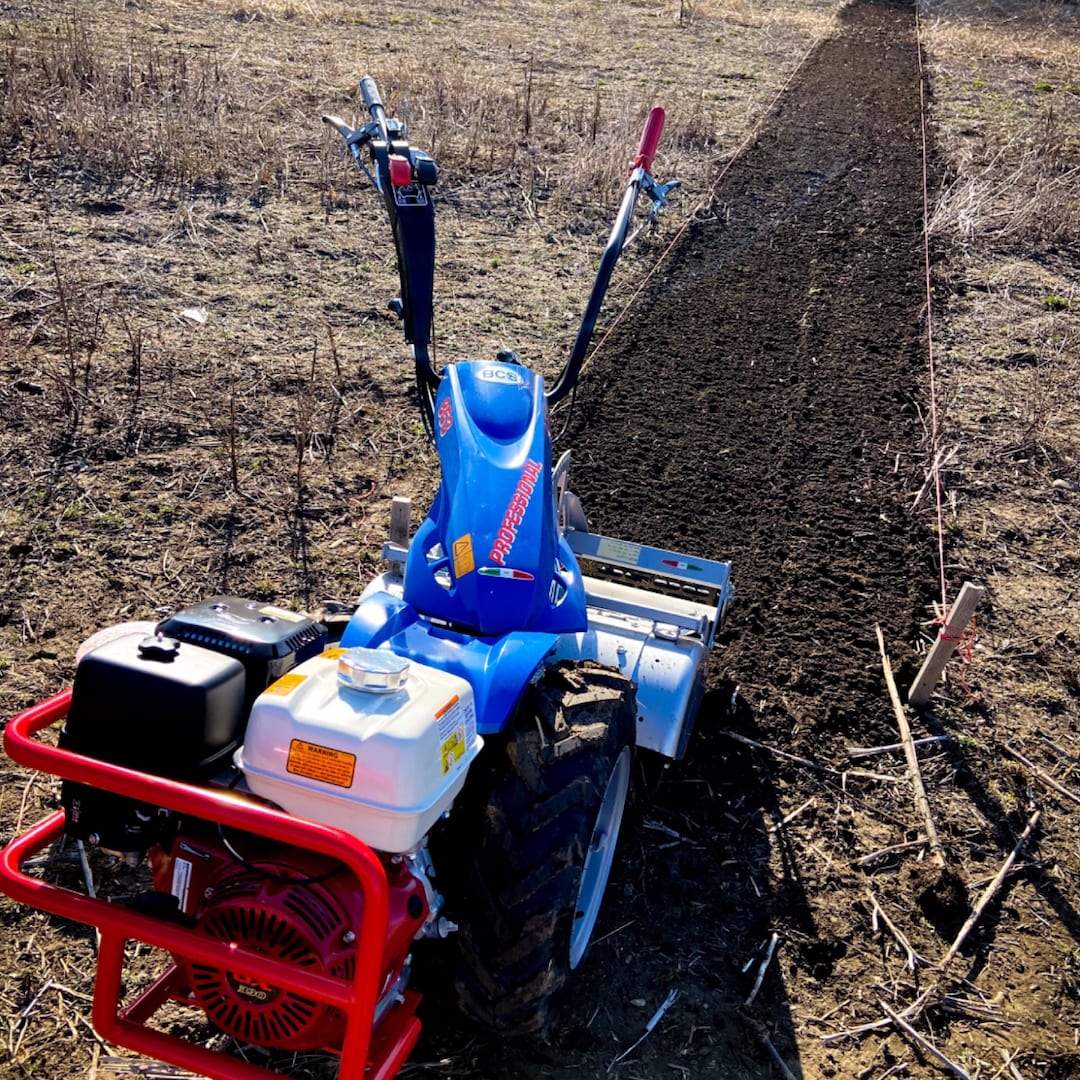
Moving dirt is hard! We tried a lot of things: shovels, rakes, small electric tillers, big gasoline tillers, but eventually we realized we needed a large tool that could handle a number of different tasks. Buying a full size tractor with implements was out of the question due to price and size. Some friends of ours told us about BCS, a two wheel tractor developed in Italy tgat is used on small farms in areas where it is difficult to operate larger tractors. A lot of produce and flower farmers in the US have adopted these amazing machines that are perfect for smaller farms cultivating specialty crops. These machines have an independent PTO that can hook up to a number of different attachments. We currently use a 30” tiller and a flail mower.

When seeding thousands of square feet with tiny seeds that need to be specifically spaced and buried at a certain depth to ensure germination and growth, there are a number of problems that present themselves. First, direct seeding by hand is back breaking and time consuming. Second, seed waste becomes an issue as small seeds are hard to navigate and too many seeds are planted. Third, time is an issue as hand seeding is quite slow. After researching what other farms were using, we decided to invest in a Jang Seeder. This is an amazing device developed in South Korea that is perfect for produce and flower farmers working in smaller spaces. It allows you calculate and adjust both for seed size and seed placement in rows. I will say, it takes a minute to figure out what size rollers to get as flower seeds can be inconsistent, but once you get everything dialed in, what once took hours, now only takes minutes!
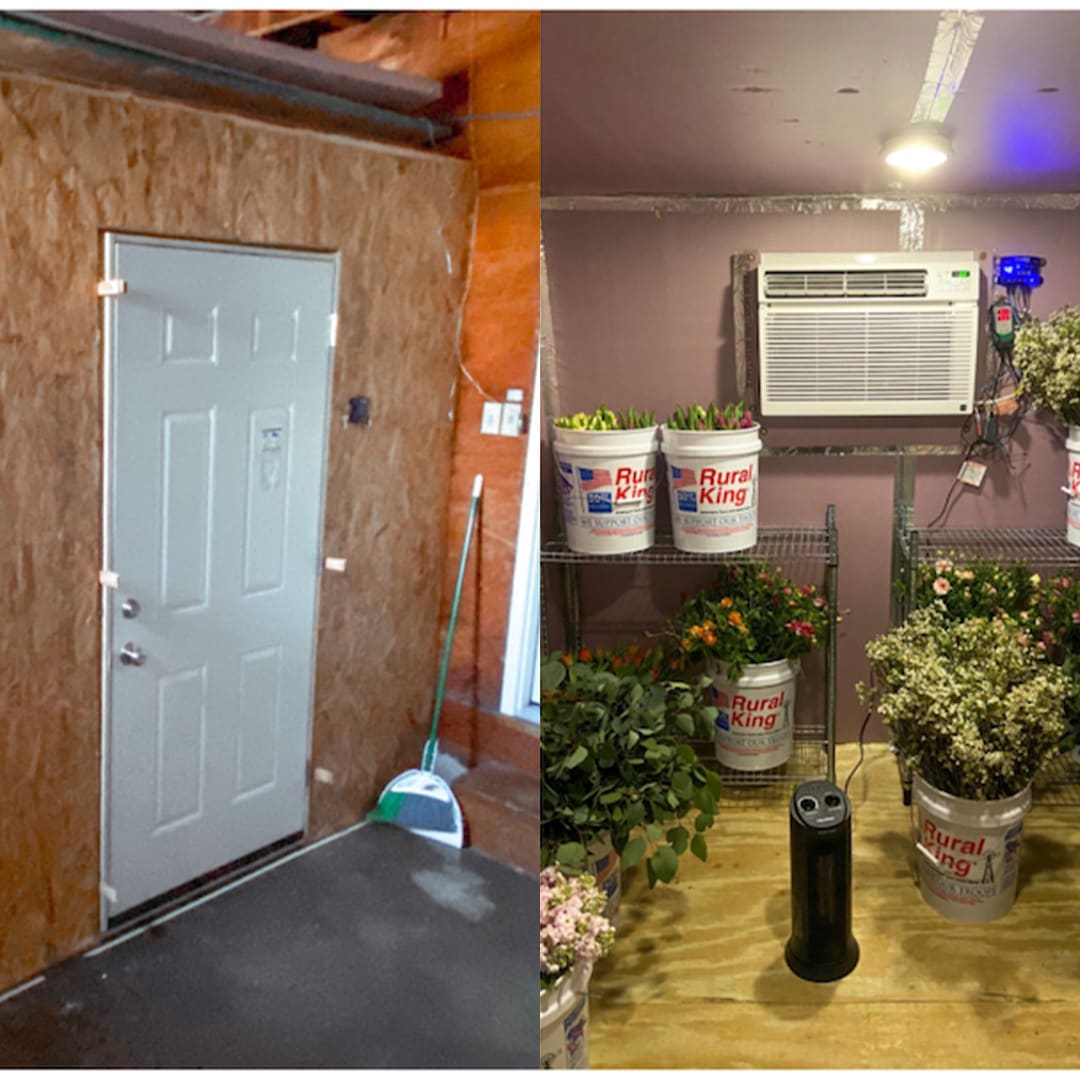
When we first got started, we tried to convert a chest freezer into a flower cooler, but only ran into issues with moisture and the fact that we could only keep a couple buckets cool at the same time. So we decided to get a commercial cooler to store flowers from the farm. The problem was, buying a brand new commercial grade walk in cooler was extremely expensive. This left us with the choice to either find a used walk in that we refurbish, or build our own! Through Floret Flowers, we learned about the CoolBot Pro, a device that allows you to utilze a simple window AC unit. I called the CoolBot people and they were awesome! Not only did they point me to DIY plans for building a cooler from scratch, but they also made themselves available during the build as I had questions. I can manage and monitor all the temp settings from my phone and it has been a game changer for our farm!
Where We Are Located
FARM LOCATION AND VISITING INFORMATION
We are located in Urbana, IL near the Stone Creek neighborhood and The Atkins Golf Course. We would love to give you a tour of our farm and send you home with some fresh cut flowers.
Because we are a working farm, we are not open to the public except by appointment or during special events.
Please send us an email at florosophyfarms@gmail.com or call (217) 751-4080 to schedule a visit!
